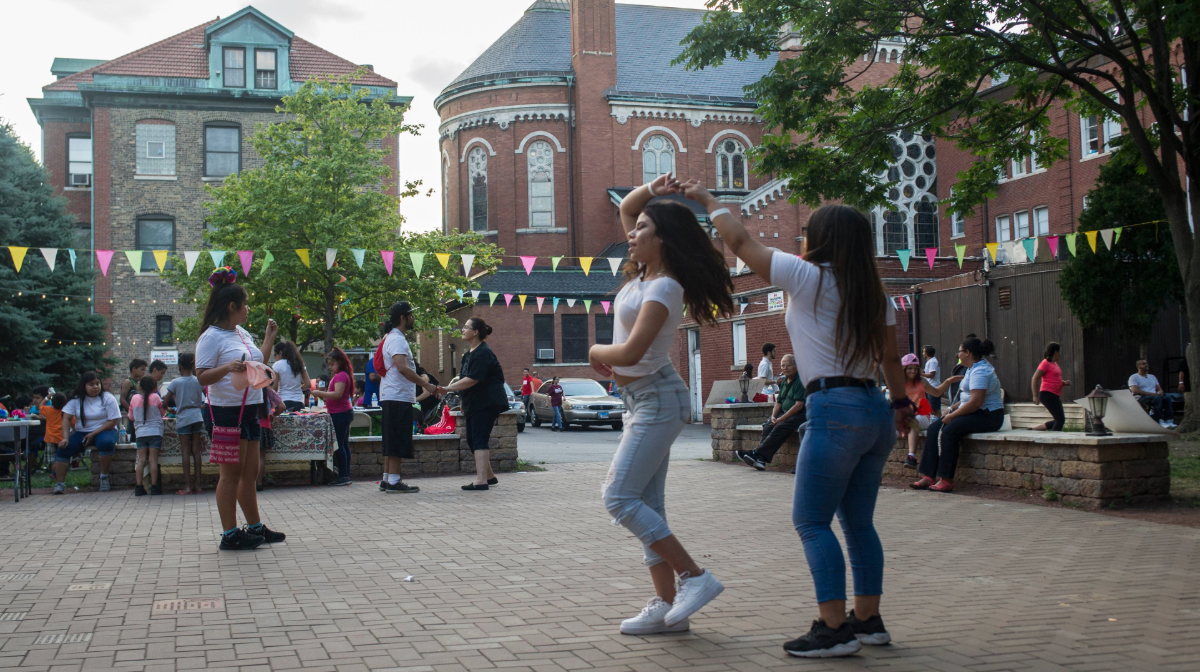John Palfrey reaffirms our commitment to racial justice after recent U.S. Court decisions challenging programs working toward racial equity.
As President of the MacArthur Foundation, I am asked regularly if we are backing away from our commitment to racial justice in the wake of the United States Supreme Court opinion in 2023 regarding higher education admissions and subsequent lawsuits challenging an array of programs seeking racial equity. The answer to that question is an emphatic “no”: we are fully committed in our support to bring about more just and equitable communities. That includes an ongoing commitment to racial equity that spans our areas of operation—a commitment that is also fully in keeping with the law.
We are fully committed in our support to bring about more just and equitable communities.
At MacArthur, we have devoted ourselves to racial justice as a key component of our mission to help build a more just, verdant, and peaceful world. Because the inequities and injustices that persist have been built on discriminatory or exclusionary practices dating back before the Founding Fathers wrote our Constitution, justice demands change from the status quo. Our Just Imperative guides our commitment to change.
The pursuit of racial justice is consistent both with our mission and with the requirements of the current law wherever we operate. While the United States Supreme Court and some laws prohibit the use of race as a “but for” or “plus factor” in some settings, it remains lawful to attend to the consequences of our decisions and to choose actions to help address historical and present-day racial inequities. We ensure that any consideration of race does not violate relevant laws governing contracted employment, investments, and gifts.
Current law in the United States makes clear that criteria in our decision making as a private foundation can include factors such as geographical locations, socio-economic status, first-generation immigration status, organizational commitments to racial and economic justice, and remediating a history of discriminatory underinvestment in certain communities. We use such factors even if the expected outcome of doing so stands to benefit specific communities and people that have faced racial discrimination.

Racially neutral criteria are lawful for decision making use, as the Supreme Court and other legal authorities have made clear. It is lawful in admissions decisions in higher education to look to geography, socio-economic status, first generation immigration status, individual commitments to racial and economic justice, and historical experiences. The United States Supreme Court has in the past endorsed consideration of such factors even if such considerations will result in the admission of a higher percentage of Black, Latine, and other persons of color so long as there is not discriminatory intent and disparate impact (Fisher v. University of Texas at Austin, 579 U.S. 365 (2016); and Parents Involved in Community Schools v. Seattle School District, 551 U.S. 701, (2007)). Even as the Supreme Court halted affirmative action in higher education, college applicants may describe how race has affected their lives and experiences and contributed to characteristics such as grit and fortitude when writing their college essays (Students for Fair Admissions v. Harvard, 600 U.S. 181 (2023)). As a leading federal court recently noted, the majority of the Supreme Court would permit the use of neutral selection criteria that is likely to result in achieving diversity within the student body (Boston Parent Coalition for Academic Excellence v. The School Committee for the City of Boston, No. 21-1303 (1st Cir. 2023)).
At MacArthur, we continue our practice of collecting demographic information on our grantees, investment managers, and our Staff, so we can be accountable to our goals and measure progress toward a more just, equitable, and inclusive society. We will continue to seek to achieve racial justice goals through lawful mechanisms that help us identify diverse candidates, firms, and grantees through expansive outreach programs, expanding networks, lowering barriers to qualified people and firms, and recognizing implicit bias.
MacArthur will use all the legally available tools and processes to pursue our goals of racial justice.
We believe we have a First Amendment right to select grantees that align with—and express—our philanthropic mission and values and we will continue to do so within the law. We also believe that the law prohibiting the use of race in making contracts does not apply to gifts. Nothing in the recent decision in the Fearless Fund case out of one Circuit Court of Appeals changes our view. We intend to make full use of our freedom to give in ways that align with our mission.
MacArthur will use all the legally available tools and processes to pursue our goals of racial justice. We continue our work toward a more just, verdant, and peaceful world in which a person’s prospects in life are not determined by race, ethnicity, or any other aspect of identity. This is not a time to step back from the pursuit of racial justice, and we do not intend to do so.




